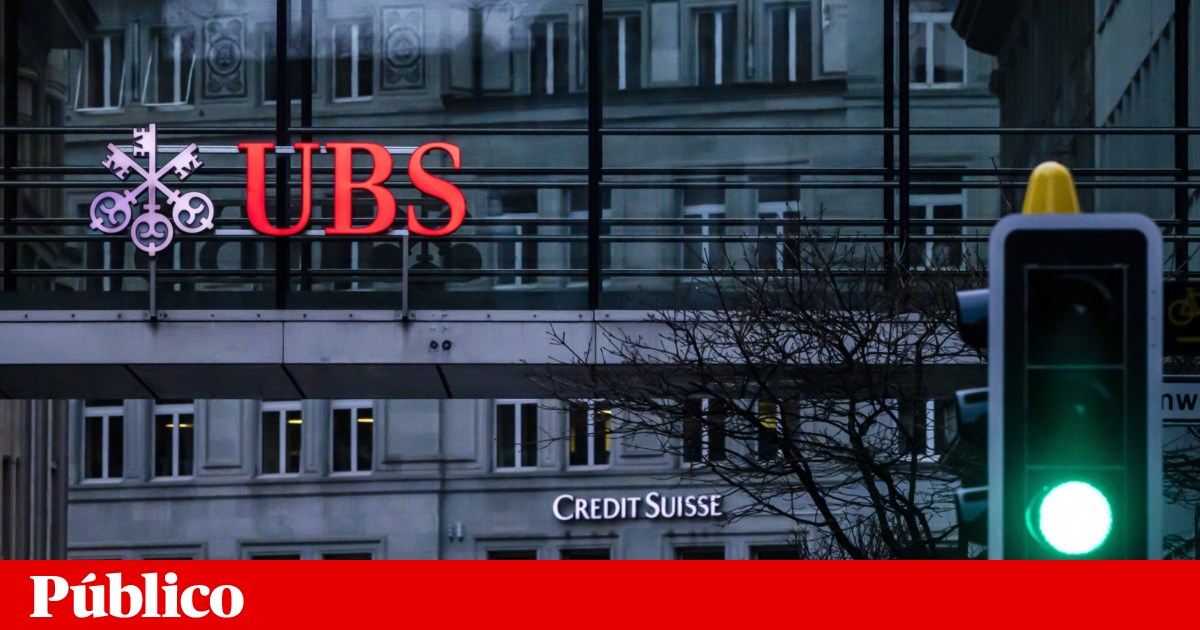To bring back memories of the 2008 global financial crisis, in which the authorities of many countries were looking, in a race against time and against the markets, for emergency solutions to failing banks, Switzerland this weekend saw its second largest bank buyout, the Swiss Central Bank. The historic Credit Suisse bank, to prevent it from going bankrupt with contagion effects for the rest of the world’s banks.
It was late Sunday afternoon, a few hours before the stock markets reopened and after two days of intense negotiations, the deal was announced. a UPS you will get Credit Suisse In the amount of 3,000 million Swiss francs (about 3,030 million euros).
The historic Swiss bank, which was born 167 years ago and has a global presence mainly in the field of investment banking services, has recorded great losses in recent years, management scandals and customer losses, as its shares have been on a downward path that exacerbated this a week ago, since a shareholder announced The two principals, the National Bank of Saudi Arabia, said that it would no longer be able to enhance the capital of the institution.
The SNB initially responded by offering Credit Suisse a credit line of more than €50 billion, but as of Friday – and at a time when the risk of a new international financial crisis looms over the markets – it became clear that the solution would have to be more radical.
The fastest way found by the Swiss authorities to restore stability to their financial system was to have the largest bank, with more positive results over the past few years and seen as safer and more stable by the markets, buy Credit Suisse.
Initially, it was reported that neither one nor the other bank wanted the operation. On the part of Credit Suisse, its shareholders were trying to escape the inevitable, and lost a large part of their investment. On the UBS side, the concern was what risk would have been assumed when absorbing an asset such as Credit Suisse.
The negotiations included proposals and counter-proposals – the financial times It reported that UBS’ first takeover bid was close to $1 billion (about 930 million euros) – and the authorities, to secure an agreement over the weekend, applied pressure, but also had to take financial risks.
The purchase of Credit Suisse by UBS for 3,000 million Swiss francs (about 3,030 million euros) is still far below the market value of the bank. Moreover, they revealed Swiss regulatory authorities Sunday’s deal includes the Swiss central bank providing extraordinary liquidity to the two involved banks in the amount of 100 billion Swiss francs (about 101 billion euros).
The Treasury also assumes, following the example of what happened in Portugal in the case of the sale of Novo Banco (formerly BES), the issuance of general guarantees in the amount of 9,000 million Swiss francs (about 9,100 million euros) to be executed according to the losses recorded in the future on the assets now acquired from by UBS.
UBS will bear the first 5,000 million Swiss francs of losses, the next 9,000 million Swiss francs will be reimbursed by the state, and from this amount onward, USB will have to deal with losses again.
At the press conference announcing the operation, Swiss financial regulator FINMA said there was a risk that Credit Suisse would become “illiquid, even if it remains solvent, making action by the authorities necessary.” On the other hand, central bank officials advocated “finding a solution to protect financial stability and protect the Swiss economy from an exceptional situation.”
European Central Bank President Christine Lagarde, perhaps comforted by the reduction in the risk of contagion to the eurozone, also issued a statement saying that the measures taken by the Swiss authorities are “necessary to ensure financial stability” and ensure that “the banking sector in the eurozone is resilient”.
The two big Swiss banks are currently facing very different circumstances. While UBS recorded a profit of about 7.1 billion euros in 2022, Credit Suisse recorded losses of the same size. UBS’s assets are almost twice as large as Credit Suisse, and its stock market value is almost eight times larger.
Together, the two will now occupy a more prominent place in the global financial system, namely in terms of investment banking.
Credit Suisse currently has around 50,000 employees and it is not clear whether, as a result of this operation, there will be no reduction in the number of jobs.

“Wannabe internet buff. Future teen idol. Hardcore zombie guru. Gamer. Avid creator. Entrepreneur. Bacon ninja.”

